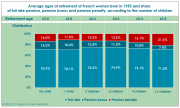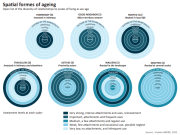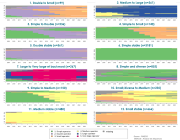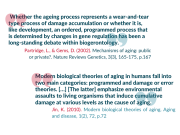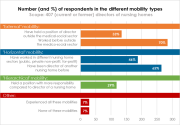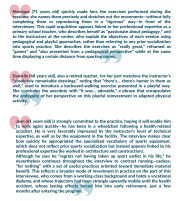
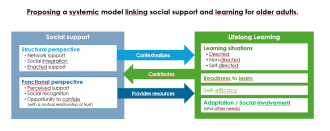
Marie MEYER, a researcher in the field of educational and training sciences, studies the links between the social support system (measured in terms of structural elements, which are quantitative, and functional elements, which are qualitative) and learning. In the case of older adults, this refers to a set of skills, knowledge and abilities that enable them to manage the aging process as independently as possible. Marie MEYER conducted a questionnaire survey of people aged 50 and over. The analysis of the 2073 responses received shows two types of link between learning and social support.
Firstly, in terms of the structural aspect of social support, people who reported having frequent social relationships described a greater variety of activities and social involvements (adult classes, leisure clubs, voluntary work, etc.) Their readiness to learn is higher. Health status plays a role in these associations: people who report frequent contact with health professionals describe fewer activities and lower levels of learning and self-efficacy than others. These structural elements may help to contextualize the learning experience.
Secondly, on a functional level, people who benefit from a type of support adapted to their needs (e.g. listening, information and advice) and who receive social recognition from their environment are more involved in activities towards others, which contributes to forms of self-sufficiency. Their sense of self-efficacy and readiness to learn are also higher. The quality of social support may therefore be a resource that promotes engagement and learning.
Without being able to confirm causal relationships, as learning activities in turn contribute to the development of the support system, Marie MEYER's work underlines the importance of taking greater account of social relationships in the socio-educational support of older people.
Docteure en Sciences de l’Éducation et de la formation, Mulhouse, LISEC UR2310.
Référence :
- Meyer, M. (2024). L’apprentissage tout au long de la vie des adultes plus âgés : enjeux du soutien social au prisme des transitions de vie [Thèse de Doctorat en Sciences de l’Éducation et de la formation, soutenue le 14 octobre 2024]. Université de Haute-Alsace, Mulhouse.
